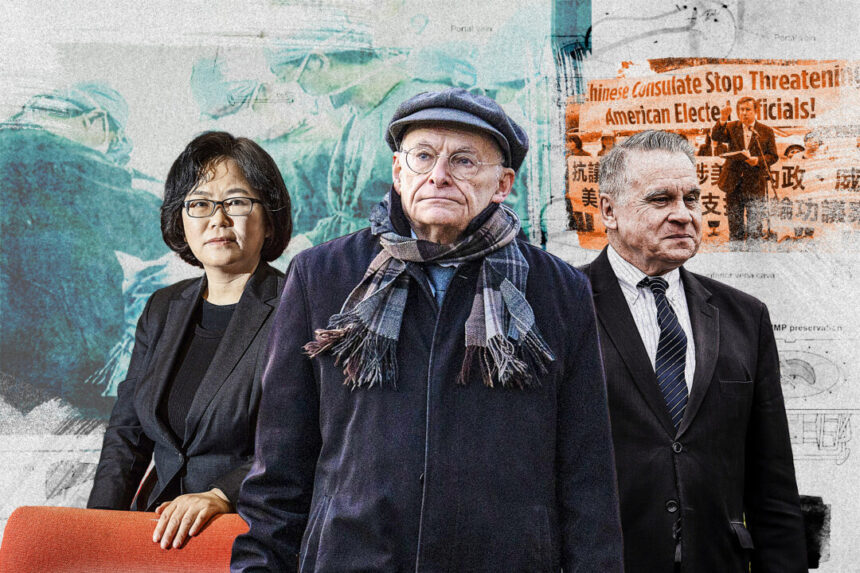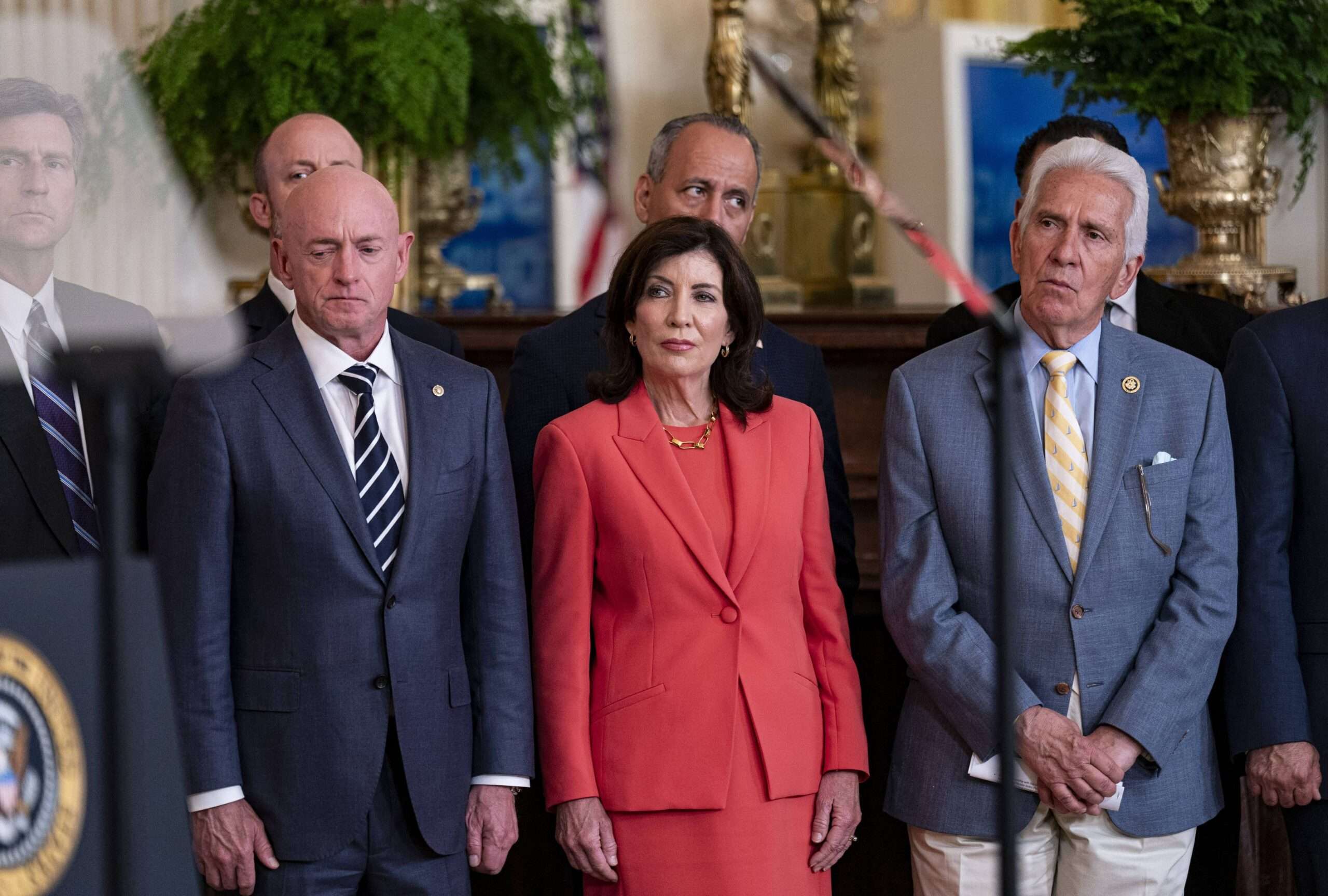Investigating the Chinese regime’s systematic killing of prisoners for their organs, human rights lawyer David Matas found himself targeted by suspicious events.
Organizers canceled events, venues backed out, and threats were made, including a drive-by shooting and a call from a Chinese government official.
Despite the intimidation, Matas stood firm, challenging the regime to stop organ transplant abuse in China.
Since the scheme’s exposure in 2006, little progress has been made in stopping the billion-dollar industry fueled by forced organ harvesting.
While the Chinese Communist Party has shifted tactics, using economic and diplomatic pressure to silence critics, advocates like Rep. Chris Smith continue to push for accountability.
Smith’s Stop Forced Organ Harvesting Act, passed by Congress in 2023, faces opposition from China, labeling it a “big lie.”
Despite the challenges, Smith and others are determined to expose and combat the heinous crime of forced organ harvesting.
Silence from medical associations and corporations is seen as complicity in the ongoing human rights abuses in China.
Efforts to raise awareness, like California state Sen. Joel Anderson’s resolution, have been met with interference from the Chinese government, highlighting the pervasive influence of the regime.
Despite these obstacles, advocates like Anderson, Smith, and Matas remain steadfast in their fight against forced organ harvesting in China.
With a 3-and-a-half page summary of the tribunal’s findings in hand, he approached the school’s chief medical officer, suggesting that they sit down with the legal and transplant teams of the university’s medical center. Dr. Gilcrease said the officer was aware of organ harvesting but declined to take action for fear that China would send students to Texas instead of Utah. Time and again, fear of offending the regime has been walling off voices on the issue.
In 2023, Canadian filmmaker Cindy Song completed the documentary, “State Organs,” a six-year investigation into the unexplained disappearance of two Chinese people in their twenties. Both were Falun Gong practitioners—one disappeared while on the run from police for distributing DVDs shedding light on communist China’s persecution targeting his faith, while the other disappeared a year after losing her husband to torture in a Chinese labor camp. Falun Gong, with 70 to 100 million adherents in China, has been the target of the CCP for the past 25 years due to its principles of truthfulness, compassion, and tolerance, making its practitioners a prime organ source.
An Italian distributor expressed interest in the film in October 2023 but backed away the next day due to pressure. Similarly, Ms. Song faced rejection at the American Film Market in California. A Canadian copyright insurer also declined partnership with her film in November 2023 due to the contentious subject matter.
Money, as a weapon used by Beijing, coerces self-censorship. Ms. Song highlighted how those who want to make money from China must adhere to its rules, leading to self-censorship and silence on the regime’s crimes.
Mr. Smith also acknowledged the power of China’s financial influence in silencing critics. He emphasized the need for calling out the CCP’s atrocities through legislation and policy.
Despite growing awareness of the issue, responses from the medical community have been slow. The International Society for Heart and Lung Transplantation and the Association of American Physicians and Surgeons have taken action against forced organ harvesting from China.
Dr. Gilcrease stressed the difficulty of speaking out against the CCP due to its power and propaganda. The fear of retaliation and lack of support from the medical community make it a challenging topic to address.
The transplant field, being a close-knit community, has noticed China’s rapid growth in the organ transplant sector. Collaboration or exchange with U.S. practitioners remains a contentious issue due to China’s involvement in forced organ harvesting. Chinese surgeons honed their skills in the United States before applying them in major Chinese hospitals that were implicated in forced organ harvesting, as documented in a 2022 report from the World Organization to Investigate the Persecution of Falun Gong. Former Chinese health minister Huang Jiefu, who is on the list of doctors involved, has defended Beijing’s position by pointing to the organ donation program established in 2015 to address concerns about the source of organs.
A 2019 study published in BMC Medical Ethics found that Chinese organ donation data appeared too neat to be true and likely manipulated. Despite this, some prominent U.S. surgeons, like Dr. Francis Delmonico, have expressed satisfaction with Beijing’s promises to improve organ transplant practices. Dr. Delmonico’s dismissal of concerns about forced organ harvesting at a Harvard panel raised eyebrows, with critics questioning the validity of China’s organ donation data.
Dr. Delmonico’s stance reflects a consensus among transplantation leaders, but skeptics like Dr. Gilcrease argue that China’s numbers cannot be taken at face value. Detailed analyses of Chinese hospitals’ transplant programs suggest that the regime is underreporting transplantation rates, with evidence pointing to systematic falsification and unethical practices.
The lack of transparency in China’s healthcare system complicates efforts to uncover the truth about forced organ harvesting. Despite challenges, activists and researchers continue to gather circumstantial evidence and advocate for accountability. The suppression of discussions on this issue by the Chinese Communist Party only reinforces suspicions of wrongdoing and the urgent need for independent oversight. Torsten Trey’s group, Doctors Against Forced Organ Harvesting (DAFOH), applied for a booth at the June American Transplant Congress, North America’s largest meeting for the transplant ecosystem, in mid-November 2023. However, they received no response. DAFOH has been advocating for nearly two decades and was nominated for the 2024 Nobel Peace Prize by a British lawmaker.
The China Organ Harvest Research Center, another group dedicated to the issue, had secured a booth for the conference but later received an email along with DAFOH stating they were not welcome to participate. Both groups were asked for detailed information about their booth in April for a chance to be reconsidered but were ultimately rejected.
The decision to exclude them was puzzling as they had been presenters at the conference for years without any issues. Dr. Trey questioned the reasoning behind the rejection and expressed a desire to adjust their materials to fit the conference’s needs.
Rep. Scott Perry, who has pushed a bill to sanction Chinese officials involved in forced organ harvesting, condemned the censorship of the groups by the American Transplant Congress. He emphasized the importance of raising awareness about forced organ harvesting in the medical community.
The American Transplant Congress defended their decision, stating their commitment to ethical practices in organ transplantation and rejecting any proposals that may compromise the system’s integrity. DAFOH continued to call for truth, transparency, and accountability in the fight against forced organ harvesting, questioning why they were excluded from the conference.
Smith was hospitalized due to some physical ailments when he was struck by the harrowing reality of ongoing cruelty in China: the sight of a detained Falun Gong practitioner or another persecuted individual being brought in against their will.
He described the scene, “They’re laying there, possibly half-conscious, aware that the doctor is not there to heal them, but to end their life as an executioner, extracting two or three of their organs before the execution is complete.”
After three years of effort, Smith finally succeeded in persuading his colleagues to support the legislation against forced organ harvesting.
He acknowledged that it has been a challenging journey, but he feels that “people are starting to understand now.”
He concluded by saying, “Now that we all understand the issue, let’s take action.”
Can you please rewrite this sentence? Please rewrite this sentence.
Source link





